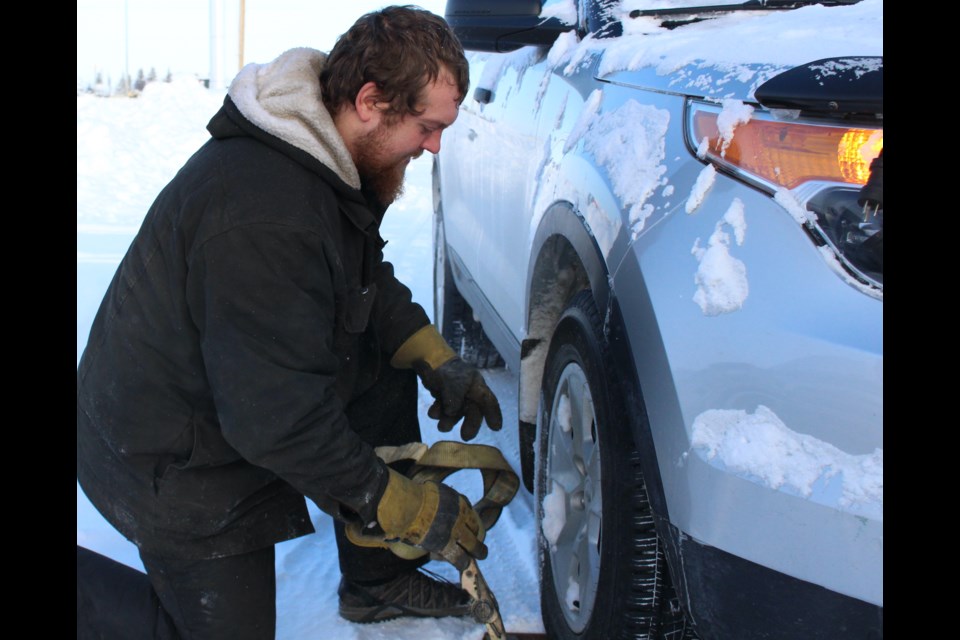WESTLOCK – Jack Frost’s icy fingers clutched much of Alberta through the holidays thanks to an Arctic airmass that created near-record lows and prompted extreme-cold warnings for much of the week.
Teeth-chattering temperatures danced around -30 C with the windchill making it feel more like -40 C as even the Tawatinaw Valley Ski Hill was forced to shut down Dec. 27-28 due to the cold. Environment Canada reported the lowest temperature for the area at -41.8 C Dec. 27, narrowly missing the record of -42.4 C — although no area records were broken, Edmonton and Banff reached all-time lows.
“This level of cold for this long is quite dangerous,” said Environment Canada meteorologist Erin Staunton, who warns that it can take only 10 minutes for skin to freeze when the temperature reaches -28 C. “Limit outdoor activities and if you do have to go outside, bundle up and dress in layers. Make sure you’re dressed as warmly as possible.”
While cold snaps are common across Canada, what is unusual is how long this one lasted. Most dips in temperature last two to three days, however Jack Frost overstayed his holiday welcome through Christmas weekend and into the following week.
“It’s not uncommon to see extended cold snaps like this,” said Staunton, who notes that the longer a cold snap lingers, the colder it gets as “there was really nothing coming in to warm us up.”
The cold and your car
Every driver has heard the dreaded sound of a vehicle not turning over first thing in the morning at least once in their lives due to the cold.
While older vehicles suffer the most from the frigid temperatures, new vehicles can also be impacted. Constant freezing and melting can cause leakages, which can damage the engine and transmission.
But most commonly, block heaters and batteries are the two main culprits when it comes to winter issues, according to Carl Larsen with Carl’s Auto Service in Westlock. He says that a properly-maintained vehicle should always start, regardless of the conditions.
“It’s the little things that are generally the issue,” said Larsen.
And the frigid temperatures displayed last week only amplify those issues. Vehicles that haven’t been frequently maintained with regular oil changes and mechanical checkups will usually lead to hard starts in the morning.
“If a vehicle is well maintained, then (the weather) shouldn’t affect it too much,” Larsen added.
Ready to roll regardless
Whether it’s an accident or someone has locked their keys in their car, tow truck operators are always prepared to respond.
But when temperatures fall to extreme lows, it becomes difficult for tires to grip roads to accelerate, turn and slow down due to the rubber shrinking and becoming harder.
“It doesn’t matter if it’s a seven-ton commercial truck or a light-duty car … you do not have grip on the road in these temperatures. Your driving must change to battle these temperatures on the roads,” warned Marcus Payne, a tow truck operator with County Towing in Westlock.
While fewer drivers are on the roads in extreme weather, Payne noted it has been the busiest year for County Towing since 2016.
When responding to calls in Artic temperatures, operators must work fast to get the job done and avoid getting frostbite while taking safety precautions when arriving on scene like setting out pylons and securing the area so they can safely do their job.
An experienced operator like Payne can secure a scene and get a vehicle loaded within 10 minutes, barring any complications.
“We all have to drive a lot slower, a lot more carefully and a lot more defensively,” Payne advised. “It takes a lot more thinking and slowing down.”



